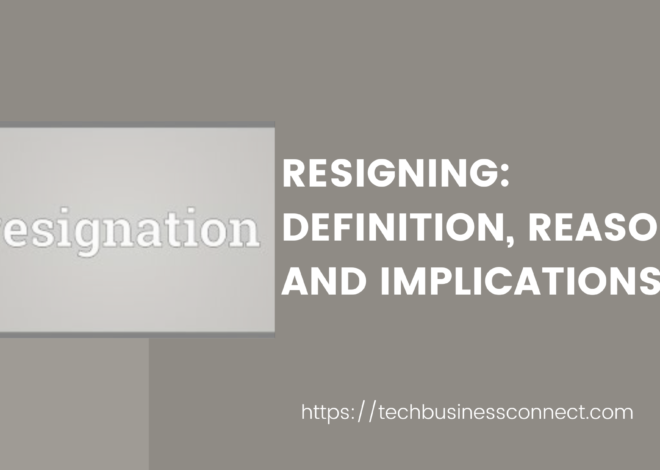
Disgruntlement Definition: Best Understanding the Causes and Consequences of Discontent 2024
Disgruntlement definition, a term that encapsulates feelings of dissatisfaction, frustration, and discontent, has become increasingly prevalent in modern society. The word itself is derived from the combination of the prefix “dis,” which means to do the opposite, and “gruntle,” a now-archaic verb meaning to make someone pleased or happy. Therefore, disgruntlement can be understood as the opposite of contentment or satisfaction. While the word may sound old-fashioned, the concept is timeless, and its relevance spans both personal and professional domains.
In this article, we will explore the disgruntlement definition, its causes, and how it manifests in various aspects of life, including personal relationships, workplaces, and society. We will also consider how to cope with and address disgruntlement to create more harmonious environments.
What is Disgruntlement Definition?
At its core, Disgruntlement definition refers to a state of dissatisfaction, usually accompanied by feelings of frustration, resentment, or anger. These emotions may stem from unmet expectations, perceived injustices, or feelings of being undervalued. Disgruntlement can be either temporary or long-lasting, depending on the circumstances that give rise to it.
Disgruntlement definition often manifests as a combination of emotional responses, including disappointment, irritability, and frustration. It can arise in various settings, from personal relationships and workplaces to broader social or political contexts. When individuals feel that their needs, opinions, or rights are being ignored or undermined, they may become disgruntled, expressing their dissatisfaction either directly or indirectly.
Although the term disgruntlement definition is often used in reference to work or professional environments, it can also apply to any area of life where individuals experience a sense of unfairness, exclusion, or unmet expectations.
Etymology and Evolution of the Term
The term “disgruntle” was first used in English during the early 17th century. Its origins can be traced back to the Old English word “grunt,” which means a low, guttural sound. The modern usage of disgruntlement reflects a state of unhappiness, often linked to complaints or dissatisfaction. Despite its somewhat humorous or antiquated sound, the word continues to capture a range of emotional experiences, many of which are still highly relevant today.
Over the centuries, the meaning of disgruntlement has remained largely consistent, although the contexts in which it is used have evolved. Today, disgruntlement is most commonly associated with workplace dissatisfaction, but it is also applicable to personal relationships, social justice movements, and political disenchantment.
Causes of Disgruntlement
Disgruntlement definition is a complex emotion, often influenced by a combination of internal and external factors. While the specific causes may vary depending on the individual or situation, several common themes contribute to feelings of disgruntlement.
1. Unmet Expectations
One of the primary causes of disgruntlement is the discrepancy between expectations and reality. When individuals have certain expectations—whether in relationships, careers, or other aspects of life—and those expectations are not met, they may feel disappointed and frustrated. These unmet expectations can range from minor inconveniences to significant life events, such as unfulfilled career ambitions or failed relationships.
In a workplace context, employees may feel disgruntled if they believe they deserve promotions or raises that they do not receive. Similarly, in personal relationships, disgruntlement may arise when one party feels neglected or undervalued. In both cases, the root cause is a mismatch between what individuals expect and what they perceive as reality.
2. Perceived Injustice
Another significant cause of disgruntlement is the perception of injustice or unfair treatment. When individuals believe that they are being treated unfairly—whether due to bias, discrimination, or unequal opportunities—they are likely to feel disgruntled. This sense of injustice can stem from various sources, including workplace policies, social inequalities, or interpersonal dynamics.
For example, an employee who feels overlooked for a promotion due to favoritism may become disgruntled, especially if they perceive their work as superior to that of the promoted colleague. Similarly, social and political disenfranchisement can lead to widespread disgruntlement among marginalized communities.
3. Lack of Recognition or Appreciation
Feeling undervalued or unappreciated is another common cause of disgruntlement. Whether in professional or personal settings, individuals who do not receive recognition for their efforts may feel discouraged and discontented. This lack of recognition can take many forms, such as being passed over for a promotion, receiving little feedback on one’s work, or feeling ignored in a relationship.
When people invest time and energy into their work or personal relationships without receiving acknowledgment, their feelings of enthusiasm and motivation may be replaced by disgruntlement.
4. Poor Communication
Communication breakdowns can also contribute to disgruntlement, particularly in workplaces and relationships. Misunderstandings, unclear expectations, or a lack of transparency can lead to frustration and dissatisfaction. When individuals feel that their concerns are not being heard or addressed, they may become disgruntled.
In many cases, poor communication exacerbates existing problems, making it difficult to resolve conflicts or address grievances effectively.
5. Powerlessness or Lack of Control
Feelings of powerlessness, whether real or perceived, can also lead to disgruntlement. When individuals believe that they have little control over their circumstances or that their voices are not being heard, they may experience frustration and resentment. This sense of powerlessness is often heightened in hierarchical environments, such as workplaces or political systems, where individuals may feel that decisions are being made without their input.
For example, employees who feel that they have no say in workplace policies or decision-making processes may become disgruntled, particularly if they believe those decisions negatively impact them.
Manifestations of Disgruntlement
Disgruntlement definition can manifest in various ways, depending on the individual and the context. In some cases, disgruntled individuals may express their dissatisfaction openly, while in other cases, disgruntlement may be more subtle, manifesting as passive-aggressive behavior or withdrawal.
1. Open Expression of Dissatisfaction
In some cases, disgruntled individuals may express their dissatisfaction directly, either through complaints, protests, or formal grievances. In a workplace setting, this might involve employees speaking out against unfair policies, voicing concerns about working conditions, or organizing strikes or protests.
In personal relationships, disgruntlement may be expressed through arguments, disagreements, or confrontations, where one party directly addresses the source of their dissatisfaction.
2. Passive-Aggressive Behavior
Not all individuals express their disgruntlement openly. In some cases, disgruntlement may manifest as passive-aggressive behavior, where individuals express their dissatisfaction indirectly. This might include subtle acts of defiance, such as procrastination, sarcasm, or deliberate underperformance at work.
Passive-aggressive behavior is often a way for individuals to express their dissatisfaction without directly confronting the source of their frustration.
3. Withdrawal or Disengagement
Another common manifestation of disgruntlement is withdrawal or disengagement. When individuals feel disgruntled, they may withdraw from their work or relationships, either physically or emotionally. In a workplace setting, this might involve decreased productivity, absenteeism, or a lack of enthusiasm for one’s work.
In personal relationships, disgruntled individuals may become emotionally distant or uncommunicative, avoiding conversations or interactions that could lead to conflict.
Consequences of Disgruntlement
Disgruntlement, if left unaddressed, can have significant negative consequences, both for individuals and for the environments in which they operate. Some of the potential consequences of disgruntlement include:
1. Decreased Productivity and Engagement
In workplace settings, disgruntlement can lead to decreased productivity, as employees become less motivated and more disengaged. Disgruntled employees may also be more likely to take sick leave, miss deadlines, or underperform, which can ultimately impact organizational success.
2. Strained Relationships
In personal relationships, disgruntlement can lead to tension, conflict, and emotional distance. If individuals do not address their feelings of dissatisfaction, their relationships may suffer, leading to resentment and, in some cases, the breakdown of the relationship.
3. Mental and Emotional Health Issues
Chronic disgruntlement can also take a toll on mental and emotional health. Feelings of frustration, powerlessness, and resentment can lead to increased stress, anxiety, and depression. Over time, these emotional burdens can negatively impact an individual’s overall well-being.
Coping with and Addressing Disgruntlement
Addressing disgruntlement requires both self-awareness and proactive problem-solving. Some strategies for coping with and reducing disgruntlement include:
1. Open Communication
Clear, honest communication is key to addressing disgruntlement. By expressing concerns and grievances directly, individuals can work towards finding solutions that address the root causes of their dissatisfaction. In workplaces, this might involve having open conversations with managers or colleagues, while in personal relationships, it could involve discussing unmet needs or expectations.
2. Setting Realistic Expectations
Disgruntlement often arises from unmet expectations, so setting realistic and achievable expectations can help mitigate frustration. This may involve adjusting one’s own goals or having open discussions about what can reasonably be expected from others.
3. Seeking Support
Whether through therapy, counseling, or peer support, seeking help from others can be an important step in addressing feelings of disgruntlement. Talking to a trusted friend, colleague, or professional can provide individuals with the perspective and emotional support they need to navigate their dissatisfaction.
4. Fostering a Sense of Control
Empowerment and involvement in decision-making processes can help reduce feelings of powerlessness. Whether in personal relationships or workplaces, individuals who feel that they have some control over their circumstances are less likely to experience disgruntlement.
Conclusion
Disgruntlement definition is a complex emotion that can arise from unmet expectations, perceived injustices, lack of recognition, or feelings of powerlessness. Whether in personal relationships


